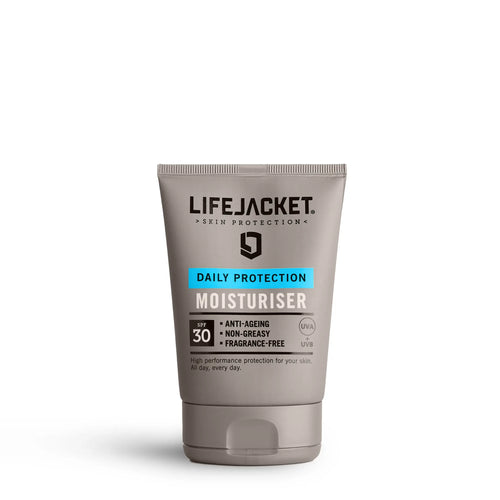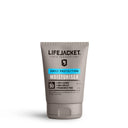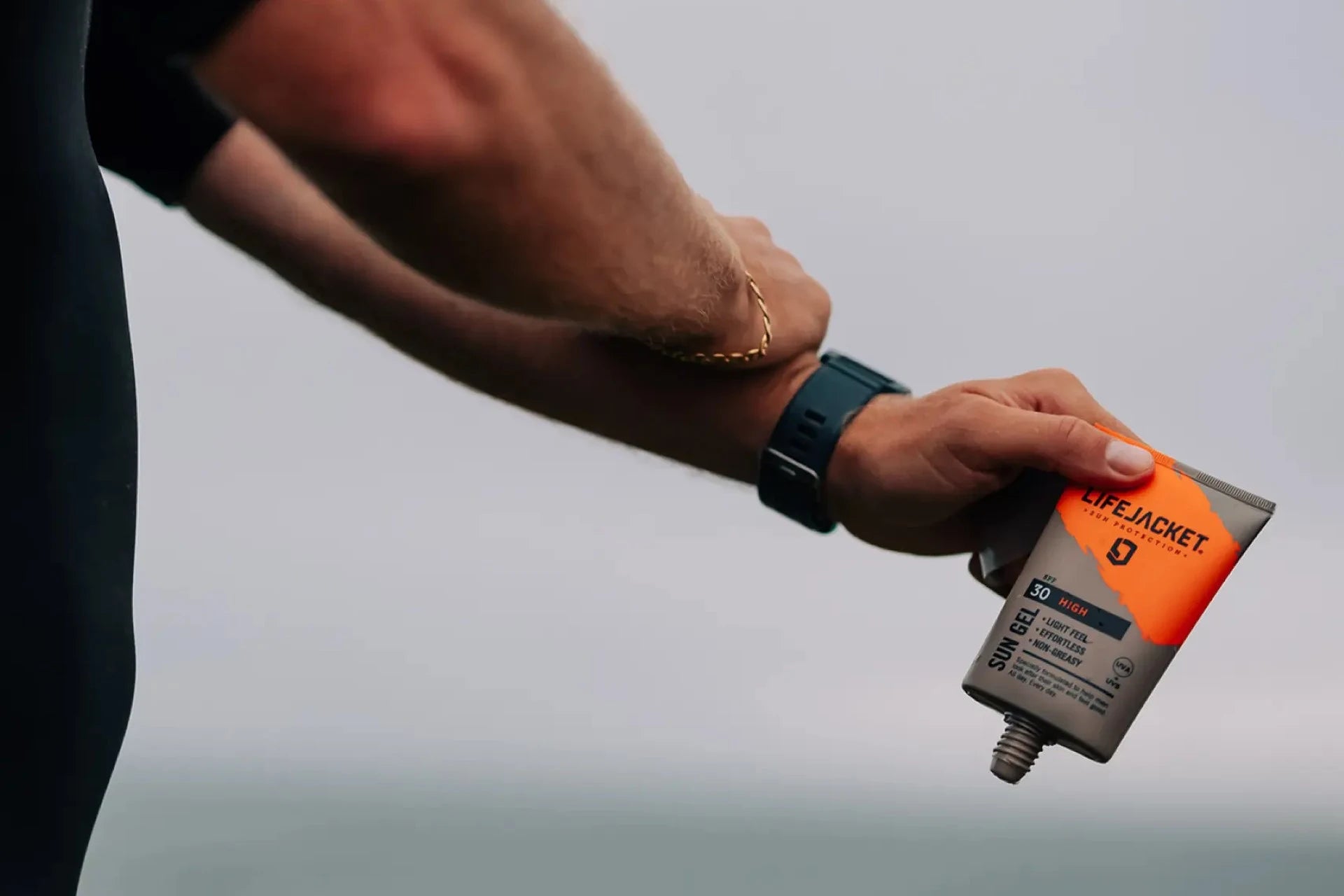Skin is the body's largest organ. Its various layers play a critical role in protecting and defending the body from external and environmental aggressors or 'stressors'. But when compromised, the ability to perform that role and form an effective barrier from the outside world diminishes.
A compromised skin barrier can show up as being red, sore, sensitive, irritated, cracked and dry. But smart decisions can restore or maintain the condition of your skin, allowing the skin to focus on protecting you, keeping you healthy and well. And with that comes an equally important side-effect: better self-esteem because your skin will just look and feel better.
What does our skin protect us from?
While this post is about the everyday environmental stressors that come into contact with your skin, it's worth knowing the bigger picture so you realise how important a healthy skin barrier is to your natural defences.
Here are the main things your skin protects you from:
-
Disease: bacteria, viruses and pollution need to be neutralised and prevented from entering the body.
-
Pressure, blows and abrasion: skin recognises pain and alerts us to danger, acting as a barrier and shock absorber.
-
Temperature and humidity variances: skin helps regulate body temperature, control moisture loss and maintain the balance of fluids.
-
Ultraviolet light: aggressive and harmful rays from the sun that cause cell damage, wrinkles and skin cancer.
-
Chemical substances: harsh products at work or home such as paints, pesticides, aerosols, cleaning products etc. that may come into contact with the skin.
What are the day-to-day external aggressors my skin is exposed to?
Hopefully, your skin isn't fighting viruses on a daily basis. So, what are the everyday stressors our skin gets exposed to as we go about our daily lives and what damage do they cause? Think about a normal day and your own personal lifestyle as you read this so you can assess how affected you might be.
Ultraviolet light
UV is present every single day. As long as it's light outside, UV is present. It slowly and accumulatively damages skin cells no matter what time of the year.
Culturally, we associate UV with summer sunshine and higher temperatures. The wavelength of UV light that causes us to burn when the sun is particularly strong during spring and summer is UVB but that only accounts for 5% of the UV reaching earth.
UVA represents the remaining 95% and its potency is broadly constant throughout the year. UVA also goes through cloud cover and even glass.
UV is responsible for 85% of skin ageing and the cause of 90% of melanoma cases. Unless you live in an underground bunker, UV protection is required every single day, all year round, as hard as that is to believe.
Harsh weather and the other elements
Cold, icy winds bracing your skin. Intense sun beaming down on your bonce. Salt water thrashing against your face. Whether you're exposed to any of these harsh weather examples for occupational reasons, or because your favourite pastime puts your skin in harm's way, it's likely your skin's barrier is under physical stress and will need some extra attention in the form of added moisture and protection.
Heating and air conditioning
Central heating, much like air conditioning in the summer, draws moisture from the skin. Both systems dry the air and reduce environmental humidity. This causes the stratum corneum, an outer layer of the epidermis, to become dry and irritated. The change from central heating to being out in the cold (or the reverse during summer), as you move from in to outside, also impacts the capillary network, causing capillaries to become dilated.
A lack of moisture within the skin can present in different ways, ranging from roughness, scaling and small cracks to redness, inflammation, constant tightness and itching. Dry skin can exacerbate other skin issues like acne, rosacea and eczema.
Pollution
Although human skin acts as a barrier to the outside world, prolonged or repetitive exposure to high levels of pollutants may have profound negative effects on the skin. Some pollutants can penetrate the skin and directly ‘corrupt’ skin cells or critical skin ‘processes’.
When pollutants come in contact with your skin, they generate free radicals. According to the International Dermal Institute, free radicals damage surrounding cells. While the skin's natural antioxidants fight free radicals according to this study in Dermatology Research and Practice, they're only equipped to handle so much.
Exposure of the skin to air pollutants has been associated with pigmentation, dark spots, wrinkles/skin ageing and inflammatory or allergic skin conditions such as atopic dermatitis, eczema, psoriasis or acne. Skin cancer is among the most serious of possible side-effects.
Living in a polluted environment may also reduce skin moisture and increase the rate of sebum excretion.
Stress
Although we're talking about the impact external stressors can have on the skin, internal or 'psychological' stress has also been found to impact the skin in various ways.
The stress hormone, cortisol, can lead to an overproduction of sebum (oil) in your skin glands which can cause breakouts. Stress impacts the immune system making the skin more reactive or hypersensitive, triggering rashes and redness. Stress can exacerbate preexisting skin conditions like eczema, psoriasis, and rosacea, giving rise to flare-ups. Finally, stress can cause anxiety that manifests itself as scratching, picking at scabs or other nervous responses that might impact the skin.
This is worth mentioning to help you identify a possible cause of any skin issues you're having but we won't pretend to be able to help or offer any solutions to psychological stress. We all experience it and deal with it differently.
What everyday choices can I make to protect my body's natural defence?
Hopefully we've helped you understand that protecting the barrier that protects you is critical. But now's the time to turn problem into solution so here are our best tips combating daily skin aggressors.
- Try and have a simple but regular skin routine and one you can adhere to. At the very least, fully commit to it for a minimum of three months and see if you think it makes a difference before making any decisions
-
Cleanse daily using a soap-free product. If you live in an urban environment and are smart enough to use SPF during the day, wash at night to make sure you remove any lingering particles from the surface of your skin. Washing again in the morning is optional in our opinion. If you washed before going to bed, water and a towel is adequate in the morning.
- As you read, a healthy skin barrier relies on hydration and moisturisation. Make this a habit that you stick to every day. In the morning, use an SPF moisturiser with a minimum of SPF 30 and UVA 4*. That will protect you from UV as the day starts. Re-apply later in the day if possible. At night, after washing and before going to bed, find a moisturiser you like that allows your skin to recover and repair overnight. Some moisturisers like our Daily Repair Moisturiser have ingredients that neutralise pollution particles on your skin.
-
Wear SPF. This is worth repeating because it really is the single product that will make the biggest difference to your skin health and have the greatest long-term cosmetic benefit. UV is present every single day wherever you are in the world. The damage it causes can be long, slow and accumulative. There's a reason all dermatologists agree SPF is the first product you should be reaching for.
- If your skin is struggling as a result of any of the daily stressors described, try to find products made for sensitive skin that are calming and will be less irritating. Our entire skincare range is clinically and dermatologically tested for use on sensitive skin.
That's it. Some practical, easy and not too onerous solutions for dealing with external aggressors. We passionately believe skin protection is the most important thing you can do for your skin health. If you haven't already started, it's not too late and we have all the tools you need.






